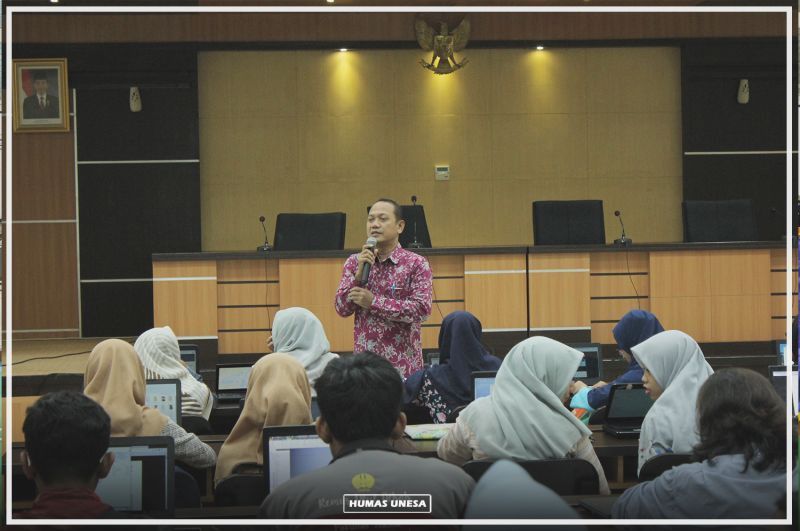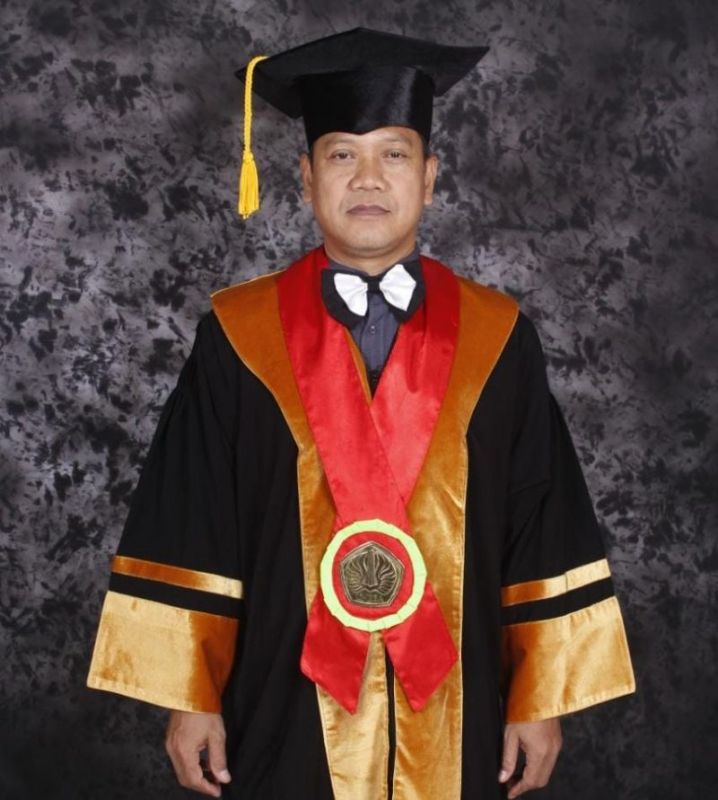
www.unesa.ac.id
Unesa.ac.id, SURABAYA - Advances in digital technology should further increase one's innovation and creativity in working. However, with the existing facilities, not a few are actually trapped in acts of plagiarism.
Plagiarism or plagiarism still occurs in society, not only in the music, literature, and other creative industries. However, it also occurs in educational institutions. The tradition of copy-pasting continues to increase and becomes a shortcut when the deadline arrives. Such actions seem to be commonplace.
Regarding plagiarism, Professor and Head of the Center for Intellectual Property Rights and Innovation Product Certification of the State University of Surabaya (UNESA), Prof. Dr. Sculpture, M.Si also commented. According to him, plagiarists often hide behind the word 'inspiration' which makes it seem as if they are free to imitate and plagiarize the work of others.
"It's natural to make people's work as inspiration. But the problem is when we actually imitate other people's work that inspired us and claim to be our own work, this is clearly wrong. We are free to work, but do not really imitate. Moreover, making other people's work in their own name, that is clearly plagiarism," he said.
Instead, he continued, the work of other people should be used as the basis for innovation or development of works that are more different from other works. “In the academic field, for example, it does not prohibit taking or quoting other people's work, but must include the source, which book or whose research. The point is honesty," he said.
In addition to plagiarism, the concern is also about copyright infringement. In the world of music, Ahmad Dhani, a musician and one of the founders of the Dewa 19 music group, was furious and even threatened to sue a private TV station for 'singing Dewa 19' without his written permission.
The latest and the ones that are still viral, for example, are the cases of “cover singers” Trisuaka and Zinidine Zidan who parodied Andika Mahesa's song, Vocalist of Kangen Band. The case had a long tail, until Andika Mahesa gave a 'hard' satire to the two who usually cover songs by Indonesian musicians, including the song Kangen Band without permission. “Song covers seem to be commonplace. But if without permission it runs into copyright infringement. This is also important to pay attention to and the public must continue to be educated about this," he said.

www.unesa.ac.id
Plagiarism Threatens the 'Climate of Innovation'
There is no definite limit to the extent to which a work can be said to be original. However, said Prof. Tukiran, as long as the work produced has high originality or excellence and is different from other works, then it is not plagiarism.
Plagiarism can threaten the creativity and innovation of the nation's children. Not only harm the owner of the work, but also harm the perpetrators of the plagiarism itself. The rise of plagiarism is slowly 'killing' the innovation climate. In order to avoid plagiarism or to prevent the work from being plagiarized by others, the owner of the work must immediately register it as an IPR at the Directorate General of Intellectual Property (DJKI).
According to him, World Intellectual Property Day, April 26, 2022, must be a means of increasing public awareness of the dangers and sanctions of plagiarism and willing and immediately registering his work as IPR, be it copyrights, patents, trademarks, industrial designs, trade secrets or other types based on the category.
“Now it's easy to register IPR, especially copyright, it's done in just a few minutes. Even now, DJKI continues to develop in providing online registration services and others," he explained.

Tips to Avoid Plagiarism
Prof Tukiran added, there are several ways that both academics and the general public can do to reduce the possibility of plagiarism, namely:
- Checking the level of plagiarism through turnitin or other similarity checkers, especially works that are in the academic and research fields. For non-written works, you can also check directly through the website https://www.dgip.go.id/ or other sources, such as: EPO (http//ep.espacenet.com); USPTO (http://www.uspto.gov); UK Patent Office (http://gb.espacenet.com); IP Australia (http://www.ipaustralia.gov.au), or WIPO (www.wipo.int/wipogold/en/), and so on.
- Avoid directly publishing his work or creation on social media or publication media to reduce the act of plagiarizing images, writings, or ideas by others. If the work has been plagiarized and registered, before the owner registers with the DJKI, the person registering the work or creation will be able to claim the work as his own.
- Immediately register the work or creation with the DJKI according to the type of IP, category and class.
- In working, it's easy to use the principle of observe, imitate and modify (ATM), not observe, copy and paste (ACP).
- Learn and understand the procedures for making works or creations that comply with existing rules. Ignorance of the existing rules can lead to plagiarism.
- Build and get used to the anti-plagiarism mentality and increase your creativity in developing original and superior works.
For information, World Intellectual Property Day is celebrated every 26 April. Reporting from Britannica, this year's World Intellectual Property Day carries the theme 'Intellectual Property and Youth: Innovating for a Better Future' or 'Intellectual Property and Youth: Innovating for a Better Future'.
The theme encourages the awareness of the younger generation to be aware of their respective intellectual property and avoid plagiarism in their work. In addition, in the Indonesian context, the theme brings a shared spirit to encourage innovation in the community and young people for the future of the nation and country that is far more advanced and superior. [UNESA PR]
Author: Hasna
Editor : @zam*
Photo : https://www.liputan6.com/bisnis/read/702805/aduan-pelaksanaan-hki-menurun-tahun-ini and personal documentation
Share It On:






